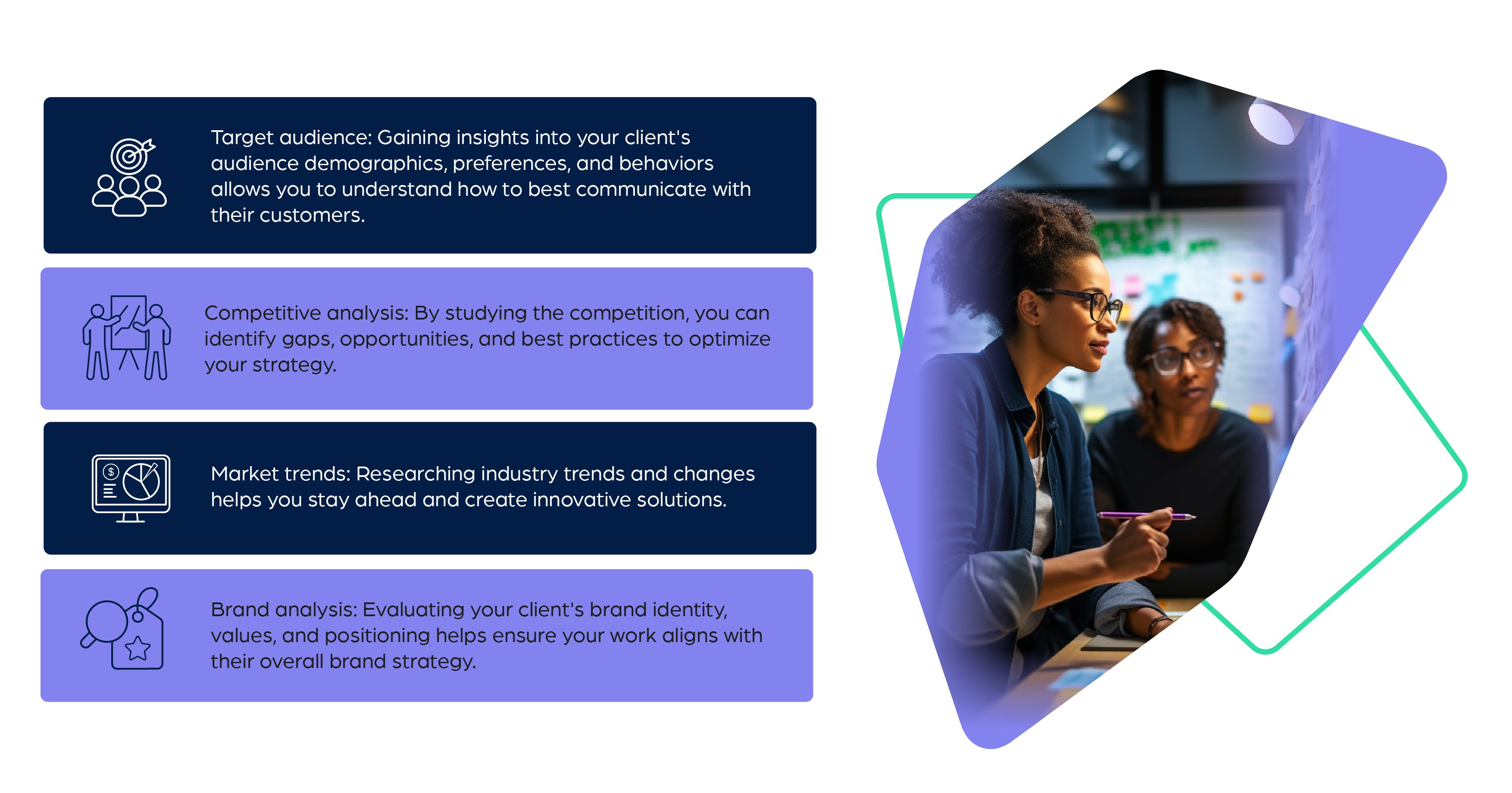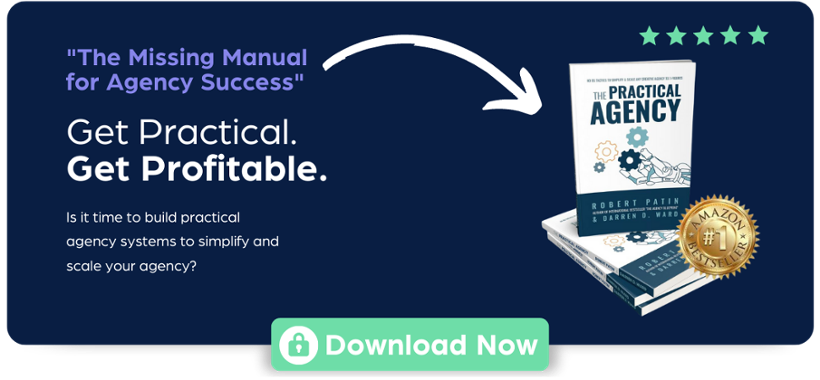
Imagine this scenario: You're on a crucial sales call with a potential client who could be your biggest opportunity yet. The conversation is going smoothly until the topic of price comes up, and suddenly, things take a turn for the worse.
The client suggests cutting costs by eliminating your research phase. They argue that they've had similar projects in the past so they possess existing research that can expedite the process to make it more affordable.
At that moment, you find yourself at a crossroads. You want them to perceive you as the expert, who knows what is required to deliver the results they’re looking for. But now, you're faced with a client who questions the value of your process. The frustration sets in as you know that without the critical research phase, you risk compromising the quality of your work and wasting time and resources on a campaign that will fail to meet the client's expectations.
It's a disheartening position to be in. You understand the significance of research, but how do you convey its importance to clients who see it as an unnecessary expense? To avoid this awkward scenario, you need to make them realize that conducting thorough research is the key to achieving their desired outcomes.
Section 2: The Value of Research

Research is a critical component of any creative agency's ability to produce quality results for its clients. It ensures that you fully understand their target market and existing competitors, allowing you to deliver a final product that satisfies their goals and objectives.
During the research phase, you should aim to understand several key elements of their business including:
-
Target audience: Gaining insights into your client's audience demographics, preferences, and behaviors allows you to understand how to best communicate with their customers.
-
Competitive analysis: By studying the competition, you can identify gaps, opportunities, and best practices to optimize your strategy.
-
Market trends: Researching industry trends and changes helps you stay ahead and create innovative solutions.
-
Brand analysis: Evaluating your client's brand identity, values, and positioning helps ensure your work aligns with their overall brand strategy.
By neglecting the research phase, creative agencies take significant risks. They may end up investing time and money in deliverables that underperform or disappoint the client. Without a foundation built on solid research, projects may take longer to complete, and critical information may be missed, resulting in the need to start over and potentially miss project deadlines.
Cast doubt to bridge knowledge gaps
To get a stubborn client to understand the great importance of your research process, it's crucial to cast doubt on the client's existing knowledge and assumptions. Ask questions such as:
- "Did you know the vast amount of competitors in your space are launching five unprofitable campaigns for every successful one?"
- "Are you aware of the latest consumer trends that could significantly impact the success of your campaign?"
- How have current market trends changed based on recent economical shifts over the last 2 years?
Using hard facts and industry-specific insights helps your clients appreciate the benefits of a thorough research process and bridge the gap of their own biases. When you take the time to highlight how research can significantly improve the outcome, you ensure it resonates with the target audience, outperforms competitors, and maximizes return on their investment.
Overcoming objections and pitching research
During the sales call, effectively communicate the importance of research to address any objections the client may raise. Even the best sales pitches will encounter sales objections, but some proactive preparation will prevent them from ruining a deal.
To prepare for objections your client may raise during your sales call, consider these responses for common concerns:
- "We're on a tight deadline": Emphasize that investing time in research upfront will result in a more targeted and effective campaign, ultimately saving time and budget in the long run.
- "We've done similar campaigns before": Highlight that consumer preferences and market dynamics are constantly evolving. Research ensures your approach is tailored to the current landscape, increasing the chances of success.
- "We need to reduce costs": Illustrate how research helps optimize resources by avoiding unnecessary expenses on campaigns that may not resonate with the target audience. Research is an investment that yields long-term benefits.
By positioning yourself as a trusted advisor, you can guide your prospects through the research process while showcasing the value it brings to their overall marketing strategy and business objectives.
Using research to close the gaps
The research phase is an invaluable aspect of the creative agency process. By investing time and effort into understanding your client's target market, competitive landscape, and industry trends, you position yourself as a trusted expert who they can trust to deliver exceptional results.
Imagine the relief of feeling confident in the work your agency produces, knowing that it is grounded in thorough research and tailored to your client's specific needs. The research phase is not a mere time-consuming task; it is a strategic opportunity to gather insights, mitigate risks, and ensure that every campaign you create performs beyond expectations.
By taking the time to communicate the value of research to prospective clients, you reiterate to them that your expertise is what they need to close the gap in their knowledge, and will guide them towards success.
Remember, satisfied clients and remarkable outcomes are only achievable when you prioritize research. Embrace the power of the research phase and position yourself as the agency that goes the extra mile to understand and exceed client expectations.
